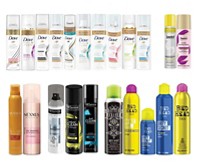Advertisement
Grab your lab coat. Let's get started
Welcome!
Welcome!
Create an account below to get 6 C&EN articles per month, receive newsletters and more - all free.
It seems this is your first time logging in online. Please enter the following information to continue.
As an ACS member you automatically get access to this site. All we need is few more details to create your reading experience.
Not you? Sign in with a different account.
Not you? Sign in with a different account.
ERROR 1
ERROR 1
ERROR 2
ERROR 2
ERROR 2
ERROR 2
ERROR 2
Password and Confirm password must match.
If you have an ACS member number, please enter it here so we can link this account to your membership. (optional)
ERROR 2
ACS values your privacy. By submitting your information, you are gaining access to C&EN and subscribing to our weekly newsletter. We use the information you provide to make your reading experience better, and we will never sell your data to third party members.
Consumer Products
Lab finds benzene in 78 sunscreens and sun-care lotions
Known carcinogen was present in a broad cross-section of brands and product types
by Craig Bettenhausen
June 3, 2021
| A version of this story appeared in
Volume 99, Issue 21

The independent analytical laboratory Valisure says it has found traces of benzene in sunscreen and after-sun-care products from a variety of manufacturers. Valisure has asked the US Food and Drug Administration to request recalls of the affected products and conduct investigations into the source of the contamination.
Benzene is a known carcinogen and has other toxic effects, primarily involving disruption to the creation and function of blood. The US bans it in the manufacture of drugs and cosmetics except when it is “unavoidable in order to produce a drug product with a significant therapeutic advance.” Even then, it is restricted to 2 parts per million (ppm). In drinking water and groundwater, the US Environmental Protection Agency has set a maximum level of 0.005 ppm and a goal of zero.
In Valisure’s analysis, conducted by chromatography and mass spectrometry, benzene appeared at 2.78–6.26 ppm in 14 samples of sunscreen and after-sun-care products. Another 26 samples had levels between 0.11 and 1.99 ppm, and 38 others showed benzene at < 0.1 ppm.
The company found benzene in chemical sunscreens, which use organic molecules such as avobenzone and homosalate to absorb ultraviolet (UV) radiation, as well as physical sunscreens, which use inorganic compounds like zinc oxide to reflect UV rays. Sprays are heavily represented in the highest benzene concentration bracket, but gels and creams appear there as well. Valisure CEO David Light stresses that the firm found no benzene in more than 200 other samples and that sunscreen is an important safety measure.
Neutrogena and Banana Boat, both of which have several products in the two highest-benzene brackets, tell C&EN that they do not use benzene as an ingredient or in the manufacturing of their products and that they are reviewing Valisure’s results. BASF and DSM, two manufacturers of sunscreen active ingredients, didn’t respond to requests for comment.
Light says his lab recently added benzene to its standard contaminant screens, which it performs on medicines and other products for retail pharmacies and other clients. “Honestly, I thought it’d be a waste of time,” he says. “Benzene has been banned in industry for decades. There’s no argument about how toxic and carcinogenic it is,” he adds. “I was quite shocked we were finding it at all.”
It’s unclear where benzene is coming from in the production process. Light says he suspects that petroleum-derived chemicals, a category that includes many active and inert sunscreen ingredients, are a likely source of benzene contamination.
Light says Valisure welcomes collaboration from the chemistry community to look for patterns in the data and develop research ideas that could reveal the sources of contamination. The firm is also asking for additional samples, especially from outside the northeastern US, where it obtained sunscreens from retail stores.
The contamination may not be limited to sun-care products, says Light, whose firm earlier found benzene contamination in some hand sanitizers. “Unfortunately, we might just be scratching the surface on this benzene problem,” he says.




Join the conversation
Contact the reporter
Submit a Letter to the Editor for publication
Engage with us on Twitter